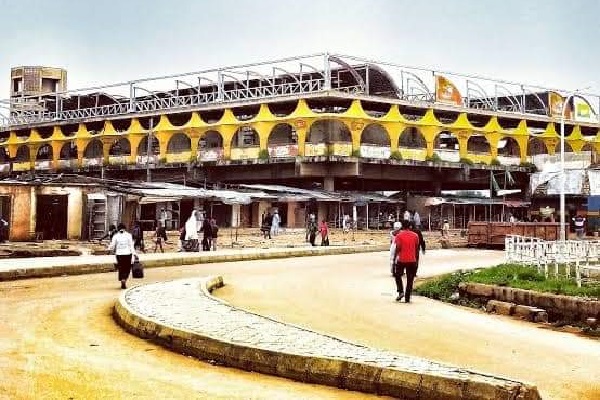Jaiz Bank would rebuild the Jos Main Market at no cost to the Plateau State government seven years after destruction during a communal violence, the Director General, Plateau State Information and Communication Technology Development Agency (PICTDA), Mr David Daser has said.
The official disclosed this in an interview with journalists in Jos, the state capital on Thursday.
The Jos Main Market is one of the largest in West Africa. It was destroyed during the 2001 Jos crisis and has been abandoned since then.
He said Governor Simon Lalong’s administration took the bold step to rebuild the market, hence approached the Jaiz bank for the project.
Mr Daser said, “For the past seven years, a lot of commercial banks, private investors and even some Chinese vested companies have shown interest in the project.
“At a point, a notable Plateau son was awarded the job, the reason why it was initially demolished to pave way for reconstruction. Somehow, the investor never showed up again.
“Jaiz bank came with a special interest at no cost to the government, no loan, no servicing of loans and we have our terminus market rebuilt.
“Not just coming with special interest but the bank is ready to be on site by August.”
He explained that the state government had not taken any loan from the bank for the project, adding that the bank would bear the entire burden of the project.
Mr Daser said the rebuilding would be in phases, adding that within the next six months the bank would complete the first phase of the project.
“The rebuilding of the market is not going to be through a debt-financing model; in other words, it is not a loan that requires repayment by the government at any time.
“It is a special model of financing where the bank builds the market without the government staking any kobo.
“Out of the 4,321 shops to be built and sold after the rebuilding, 60 percent will be leased out by Jaiz bank to interested parties. This is how the bank will recoup its investment or the cost of rebuilding the market.
“The interesting thing is that the state government will also lease its own 40 percent allocation of the shops to interested buyers.
“Without taking loans or financing the rebuilding of the market, the state government makes a lot of revenue leasing off 40 percent of the shops,” Mr Daser said.









